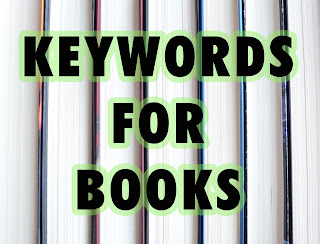By
Alex J. Coyne
An
author website is one of the most important things for a successful career
writer. An author’s website is where readers and clients go to read, discover
more, and connect with the person behind the site.
If
you’ve enjoyed an author or story, their website is usually the next place to
go. But have you thought about what visitors will see when they go to your
online page?
Good
websites tell you more about the author (or story), but also engage the reader
to stay on the site longer, comment, or contact the writer. Average websites
are a static portfolio, that inspires visitors to click away from it.
Here
are some stunning author websites (& what they’ve done right).
1.
WilWheaton.net
The Winning Factor: The Blog
Wil
Wheaton is best known as an actor, gamer, and voice-over artist, but he’s also
a pretty good writer. His memoirs (Still) Just A Geek has become a bestseller,
and he runs a regular blog about his thoughts and life experiences.
The
blog posts are worth coming back for. Posts engage readers, making them want to
comment or share.
If
you have unique stories to share or mastery of a specific niche topic (like
gardening or martial arts), there are always readers who may enjoy well-written
content.
2.
KathyReichs.com
The Winning Factor: The Interviews
Kathy
Reichs is an acclaimed forensic scientist, academic, and fiction author.
The
Bones-series, also adapted to screen, introduced Dr. Temperence Brennan;
a forensic anthropologist partially based on Reichs herself. Virals, a
Y/A series co-written with her son, brings supernatural elements and science
together for an entirely different ride.
Her
website contains all the important details about books and characters, but also
stands out for the collection of past
interviews on
the site.
An
archive of interviews or previous coverage is a great way to keep readers
clicking through what’s there.
3.
ELJamesAuthor.com
The
Winning Factor: The Merchandise
E.L.
James is the author of the 50 Shades-series, which originally began as a
fan-fiction based on Twilight. The books aren’t everyone’s cup of tea,
but the series sales figures are enough to make heads turn.
James
makes her website work with a section for merchandise.
Merchandise
can help to turn a writer’s name or stories into a brand, which can be worth
its own separate income.
4.
StephenKing.com
The Winning Factor: The Story Catalog
Stephen
King published his first novel, Carrie, and then just never stopped. King’s
horror, mystery, and drama stories have sold enough to build an entire brand -
or rather, empire - just around the Works of King.
He’s
written enough stories that the website needs an entire catalog to keep track of his
published works.
Does
your website have a list of samples, markets, or places you’ve published?
Always
try your best to keep track of what you’ve published, and where.
Rights
are easier to administrate, certain rights can be sold again, and you’ll always
know where the right samples are when you need them.
When you don’t keep track, it’s easy to get lost in a labyrinth of your own
publications for days to find something specific.
5.
Shunn.net
The Winning Factor: The Story Format
If
you’ve ever Googled the phrase “manuscript format’, you’ll have likely found
the formatting guidelines by William Shunn. Author and editor, Shunn
uploaded one of the most useful and standard resources for writers -- and it’s
considered an industry standard for the publishing industry.
I
wrote my first magazine story with these guidelines, and they’re still relevant
today.
If
you have something that you think could be useful to other writers, post it on
your website. Helpful content always tends to go further!
About
the Author: Alex J. Coyne is a journalist, author,
and proofreader. His radar is calibrated for all things gothic, gonzo, and
weird.







%20copy.jpg)





